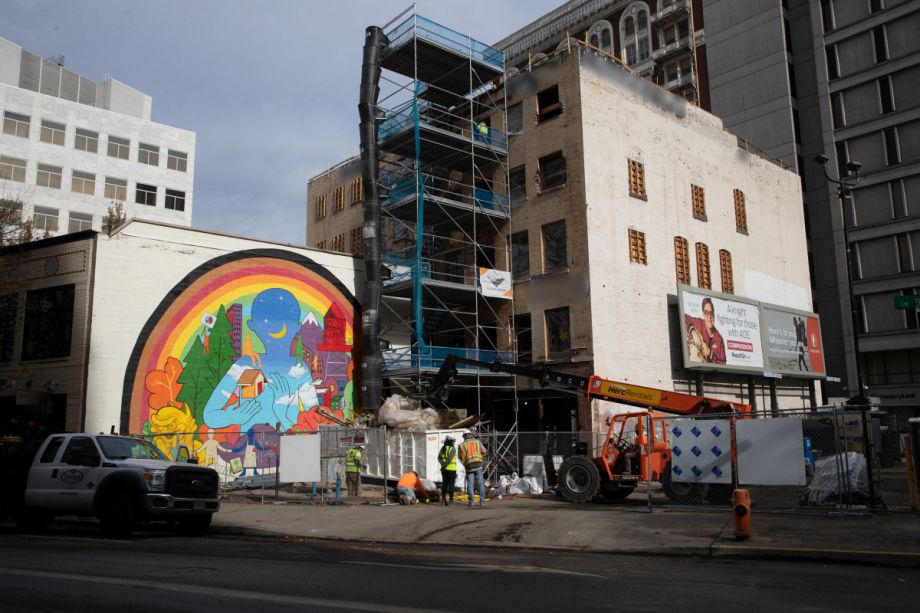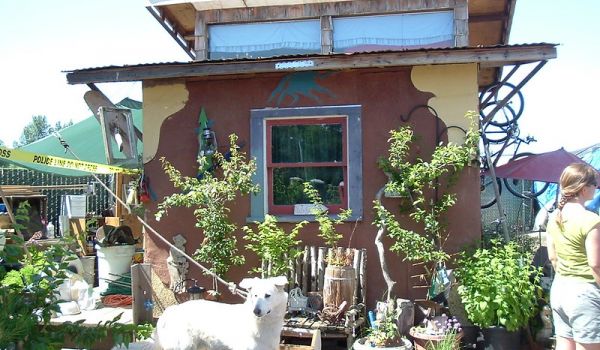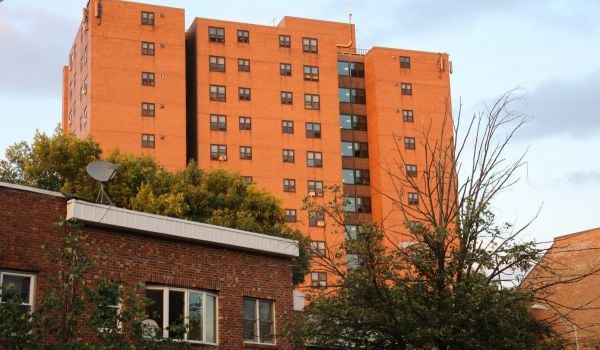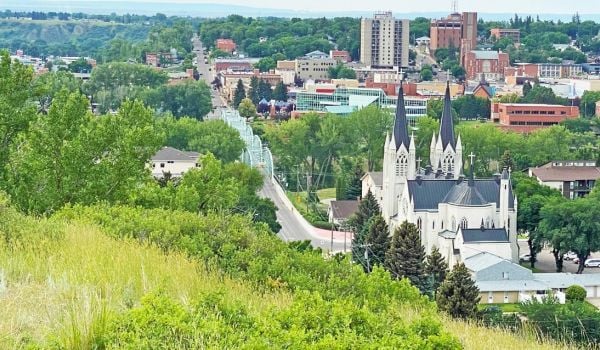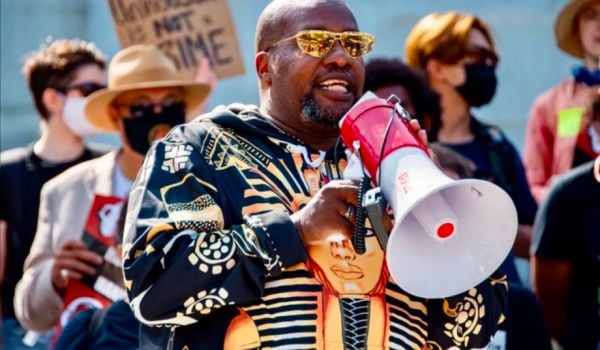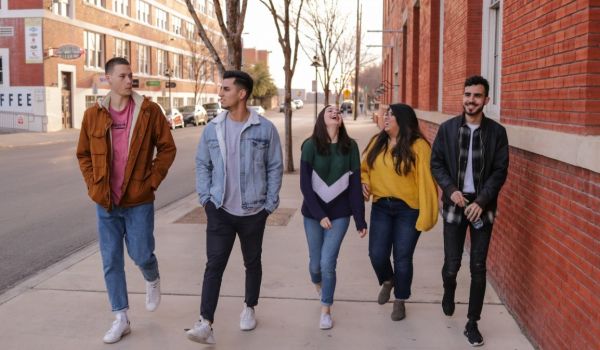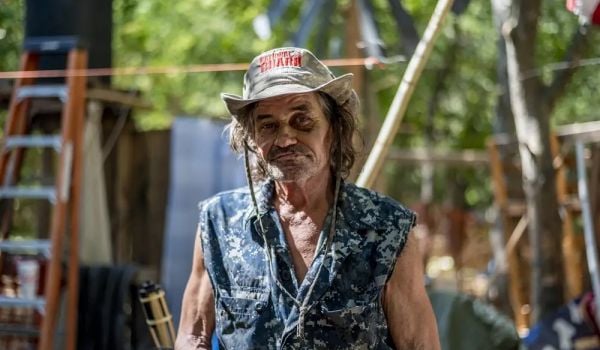This November, a new mode of support for Portlanders experiencing homelessness will open in downtown Portland, Oregon: the Behavioral Health Resource Center (BHRC). A first-of-its-kind initiative in the region, the new site is part of Portland and Multnomah County’s multi-pronged plan to better serve unhoused community members with mental illness or substance use disorders.
“We envision that the [BHRC] could be kind of a pillar of a lot of the services that we support downtown,” explains Christa Jones, senior manager of the Community Mental Health Program in the Behavioral Health Division at Multnomah County.
At least, 6,633 people in the Portland metro area are unhoused, according to the most recent point-in-time count conducted by the Joint Office of Homeless Services, a partnership between Multnomah County and the City of Portland. These individuals have access to support from a network of private and public institutions, including nearly 30 shelters supported by the Joint Office.
What sets the BHRC project apart is its emphasis on community partnerships and peer-led support. At every step of the process, from selecting the site for the new resource center to designing and staffing services, Multnomah County has worked with a network of stakeholders, including culturally-specific providers, local first responders, and community members living in shelter environments or others with relevant lived experience to create a low-barrier, recovery-oriented and trauma-informed space.
“It was important that we did it from the perspective of lived experience,” says Deandre Kenyanjui, coordinator at the Multnomah County Office of Consumer Engagement.
Based on his conversations with community members experiencing mental health and substance use conditions, Kenyanjui found that conventional support models that center on clinical interventions often traumatize people seeking help despite the good intentions of providers. This tracked with his own experience as a person in recovery from substance use, who has also experienced houselessness.
Christa Jones, who holds a Psy.D. in clinical psychology and gained years of experience in clinical settings before coming to work for Multnomah County, says she has seen the limitations of clinical models from the provider side, too.
“There’s a real need to challenge the system and to challenge the traditional models of having this clinical as a primary support and then having supplemental services kind of surrounding that primary support.”
So the Multnomah County team is flipping the clinical paradigm on its head. “Most times when a program is developed, they bring in peers or people with lived experience after they’ve already implemented services and programming,” Kenyanjui explains. But in Portland, lived experience is at the core of the BHRC’s operations.
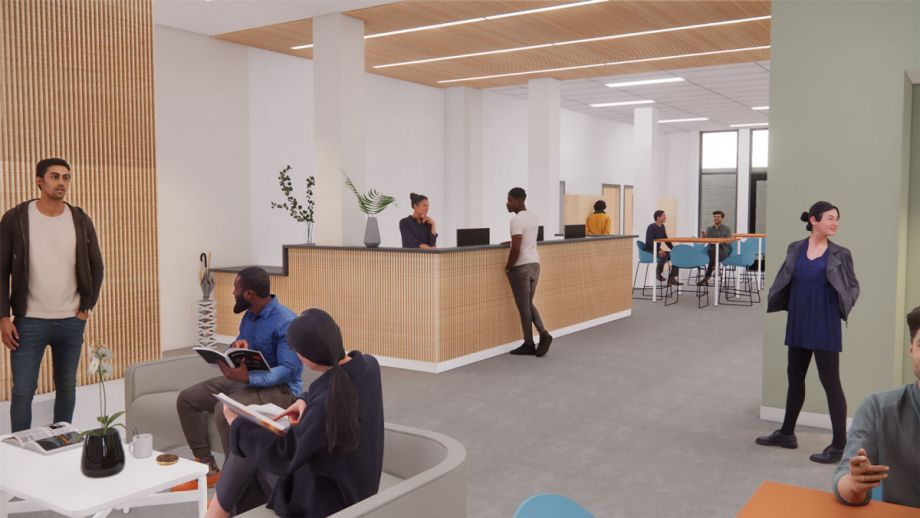
The Behavioral Health Resource Center incorporates trauma-informed design, including natural light, open spaces, and a stress-reducing color palette (Rendering courtesy Multnomah County)
The emphasis on incorporating lived experience began as soon as the team had secured a location. Christa Jones says the building in downtown Portland was selected because that’s where the need for services is the greatest. The Board of County Commissioners approved the purchase of the building on Park Avenue and an adjacent parking lot in January 2019.
The team behind the project began a peer engagement process almost immediately, arranging monthly meetings with peer stakeholders and consumers — people who use services like those that the BHRC will provide. Soon after, the team reached out to local businesses “to help [them] really understand the positive impact that the BHRC would have,” explains Christa Jones. Later meetings expanded to include local providers and first responders.
Through these meetings, as well as surveys and other research and community outreach, the Multnomah County team developed a multi-layered network of support tailored to local needs. Each floor of the BHRC will provide different services. On the first two floors of the building, a drop-in day center will be open 16 hours per day, allowing up to 200 people at a time to access necessities like laundry facilities, showers, meal services, peer counseling and more.
Services on the third and fourth floors of the resource center aren’t scheduled to open until sometime next year. But when finished, the third floor will host a 24-hour behavioral health shelter with enough beds for 33 people at a time. The fourth floor will host a bridge-to-housing program that can support up to 19 people at a time who are transitioning to more stable and permanent housing.
The shift to a peer-centered model will be most obvious in the day-to-day operations of the drop-in center, which is scheduled to open in November. While clinical supports are still essential, peers will guide the conversations and relationships at the BHRC rather than in a conventional model where a psychiatrist or therapist might lead a team of providers. The resource center’s drop-in center will be staffed exclusively by peers and operated by the Mental Health and Addition Association of Oregon (MHAAO), a peer-run nonprofit organization that promotes self-directed recovery and wellness through recovery peer services.
“When something is peer-led or peer support is at the core of it, it’s a trauma informed approach and it also creates equity,” says Tonya Jones, Behavioral Health Resource Center Director at MHAAO. Research shows that peer support helps individuals feel more comfortable seeking medical care and social services and increases treatment retention.
The specifics of the day-to-day staffing and operation of the day center have not been finalized, in part because Tonya Jones says peer support specialists and those who visit the center to access services will guide the work once the center opens. She anticipates teams of at least five peer specialists will be on-site at any given time to support visitors.
“The peer staff will first and foremost develop relationships with the peers by being intentional with listening to what the peer wants and needs. From there we will assist with referrals to different services,” explains Tonya Jones. Additional services will be offered on-site, including meetings of 12-step recovery programs, regular provider visits, skill-building courses and more.
She hopes that once the BHRC gets established, it will set an example of the power of centering lived experience and offer a model that other communities can follow. “That’s my goal, that we can hone in and allow peer work to shine.”


